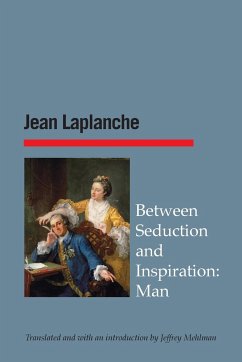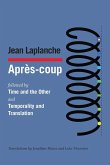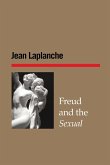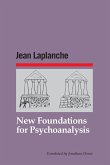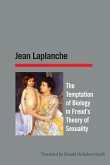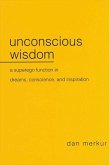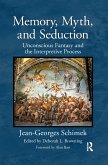- Broschiertes Buch
Andere Kunden interessierten sich auch für
![Après-coup Après-coup]() Jean LaplancheAprès-coup31,99 €
Jean LaplancheAprès-coup31,99 €![Freud and the Sexual Freud and the Sexual]() Jean LaplancheFreud and the Sexual39,99 €
Jean LaplancheFreud and the Sexual39,99 €![New Foundations for Psychoanalysis New Foundations for Psychoanalysis]() Jean LaplancheNew Foundations for Psychoanalysis42,99 €
Jean LaplancheNew Foundations for Psychoanalysis42,99 €![The Temptation of Biology The Temptation of Biology]() Jean LaplancheThe Temptation of Biology31,99 €
Jean LaplancheThe Temptation of Biology31,99 €![Unconscious Wisdom: A Superego Function in Dreams, Conscience, and Inspiration Unconscious Wisdom: A Superego Function in Dreams, Conscience, and Inspiration]() Dan MerkurUnconscious Wisdom: A Superego Function in Dreams, Conscience, and Inspiration37,99 €
Dan MerkurUnconscious Wisdom: A Superego Function in Dreams, Conscience, and Inspiration37,99 €![Memory, Myth, and Seduction Memory, Myth, and Seduction]() Jean-Georges SchimekMemory, Myth, and Seduction46,99 €
Jean-Georges SchimekMemory, Myth, and Seduction46,99 €![Seduction and Desire Seduction and Desire]() Ilka QuindeauSeduction and Desire51,99 €
Ilka QuindeauSeduction and Desire51,99 €-
-
-
Produktdetails
- Verlag: The Unconscious in Translation
- Seitenzahl: 326
- Erscheinungstermin: 1. Januar 2015
- Englisch
- Abmessung: 229mm x 152mm x 18mm
- Gewicht: 474g
- ISBN-13: 9781942254058
- ISBN-10: 1942254059
- Artikelnr.: 68959639
Jean Laplanche (b. 1924-d. 2012) was a French psychoanalyst and vintner. Among the most innovative and theoretically rigorous thinkers of his generation, his work is characterized by a return to the letter of Freud's text, a method of reading Freud according to Freudian principles, and a complete rethinking of the foundations of psychoanalytic theory and practice. Under the Vichy regime, he joined the French Resistance in 1943. The following year, he entered the École Normale Supérieure where he studied philosophy with Jean Hyppolite, Maurice Merleau-Ponty, Gaston Bachelard, and Ferdinand Alquié. In the years 1946-1947, he received a scholarship to Harvard University where he developed an interest in psychoanalysis through the interdisciplinary Department of Social Relations. Upon returning to Paris, he became a founding member of the revolutionary group Socialisme ou Barbarie. In this same period, he entered into analysis with Jacques Lacan, who remained his mentor until 1963. Laplanche signaled his formal break with Lacan in 1964. However, his intellectual break was well underway when, at the historic Bonneval conference of 1960, in a paper with Serge Leclaire, he directly opposed Lacan's theory of the unconscious "structured like a language." In 1967, with J.-B. Pontalis, he published The Language of Psychoanalysis, today the definitive encyclopedia of Freudian thought. The fruits of this project were distilled in Life and Death in Psychoanalysis (1970). A book of extraordinary insight, Laplanche showed how Freud's thought is structured by the rhetorical figure of chiasmus, wherein the repression of the sexual unconscious is itself the object of repression. This critical return to Freud was intensified through a series of lectures published as Problématiques. Lessons from the first five volumes are condensed in New Foundations for Psychoanalysis (1987). Whereas Life and Death showed how the sexual drive "leans on" vital instinct, thus restoring the rightful place of sexuality in the psychoanalytic understanding of the human being, New Foundations presents nothing less than a refounding of the entire psychoanalytic enterprise. From a recovery of Freud's famously abandoned seduction theory, Laplanche developed a "general theory of seduction," which explains how the situation of primal seduction, the primacy of the other in the transmission of enigmatic messages from adult to infant, is simultaneously the irreducible foundation of psychoanalysis and human subjectivity. With career achievements as co-founder of the Association Psychanalytique de France, professor of psychoanalysis and founder of the Center for Psychoanalytic Research at the Université de Paris VII, founder of the journal Psychanalyse à l'université, and scientific director of the translation of Freud's complete works into French, the magnitude of his thought is only now starting to penetrate Anglophone audiences.

